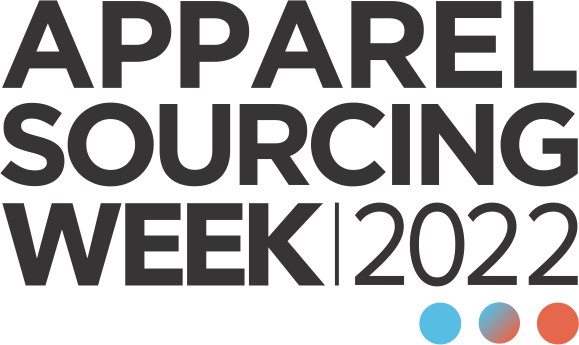News and Features
Menswear start-ups: Surviving the throes of a burgeoning market
14 September 2020
Apparel Resources
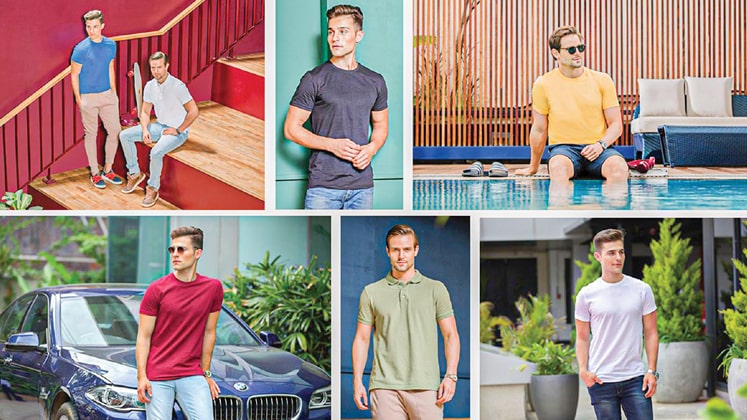
Menswear has established itself as one of the fastest growing segments globally as well as in India. Not only are brands and retailers foraying aggressively into the category, but many start-ups are also basing their focus on this segment, as it proves to be a viable business.
What’s more is the lucrativeness of the business that is pulling designers and brands alike to either diversify into the category or step up their menswear game. There are heavy-hitters like Celine, which in January 2019 released their first men's collection in the brand's 74-year history, and Prabal Gurung debuted its first men's collection in September 2018 after nearly a decade in business. Similarly, international fast fashion giants like Zara and H&M have recorded growth comparable to many womenswear brands.
The need to adopt ever-changing fashion aesthetics as well as high disposable incomes can be credited for the shift in the industry. From bespoke and tailored services, casual and loungewear brands to formals, there are endless formats, brands and products catering to the needs of the modern men.
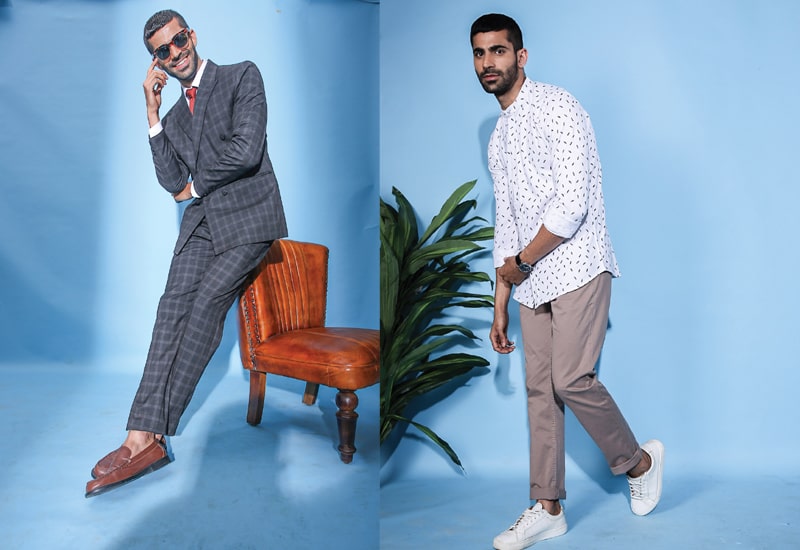
“The current state of menswear is very competitive yet dynamic. With more and more customers going digital and well-connected over internet, the demand for cool and trendy menswear is increasing exponentially. It brings upon a huge potential for brands to foray into this ever expanding market. A brand with right assortment and apt pricing can make its presence felt. Marketing with a great story will surely help one, to create a niche,” said Akshat Singh, Co-founder, Mr Button.
While most start-ups are driven by the urban population, in recent times, men from all over India have woken up to how they can achieve dapper looks they so often see on influencers and celebrities.
“The menswear market in India is definitely expanding. More independent labels and companies are growing due the increase in the segment’s demand. After all, it’s a US $ 16 billion market. The prospects of growth depend on the target market and its conscious consumers and the potential of Tier-2 and Tier-3 cities are quite high. We have loyal customers shopping from us due to our constant content stories with bloggers and a few celebrities. Our customers all over India find us to be an accessible brand at decent pricing,” commented Ria Kanal, Founder and CEO of The Uomo Co. The venture has aimed at reinventing the styling wheel for menswear through sartorial details.
Mr Button, with its trendy collection of blazers, shirts, T-shirts, Nehru jackets, kurtas, is a menswear brand that has made a name for itself and is also of the same opinion. Akshat Singh said, “We did not foray in womenswear, as we were driven by passion for menswear and to fill in the gaps of quality menswear with the right fit. Menswear is still evolving and we believe it’s the right space to be in.”
Impact of COVID-19
The menswear market, even with all its potential, is as hard hit by the pandemic as any. With consumers shifting online, many start-ups that earlier focused on offline expansion are struggling to make their space in the online world, while others are simply waiting for the worst to pass so that the Indian consumer can stop preserving cash and spend on things other than absolute essentials.
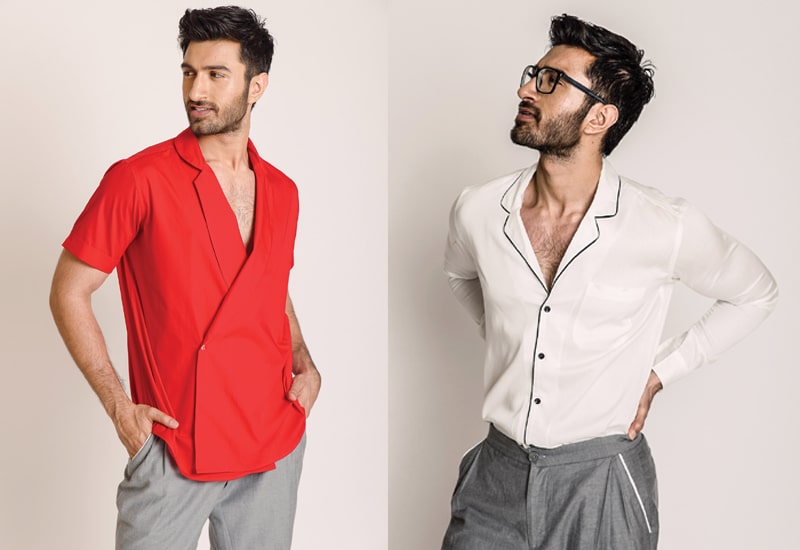
“Impact is big from all sides of business. Sculpere’s offline segment has been badly hampered due to COVID-19, and this financial year will be a challenging one, as consumer behaviour has completely changed,” said Deepak Sharma, Founder and CEO of Sculpere, an Indian luxury menswear brand founded in 2018. The brand, which had a turnover of approximately Rs. 1 crore last fiscal, offers exclusive RTW and Bespoke services consisting of apparel, accessories and shoe.
However, the company’s efforts to make the best of this time have not been deterred. Deepak added, “We are currently working on new digital web projects to provide maximum comfort to our consumers at their convenience. We are launching AI-based 3D platforms next month, and an AI-based app and web tool to provide private lifestyle assistance. Through this tool, we will provide real-time suggestions related to lifestyle queries.”
The pandemic has deeply affected the entire demand and supply cycle, and brands are forced to re-strategise to make up for the lost sales. Touching base with consumers frequently and innovating will forge the path ahead.
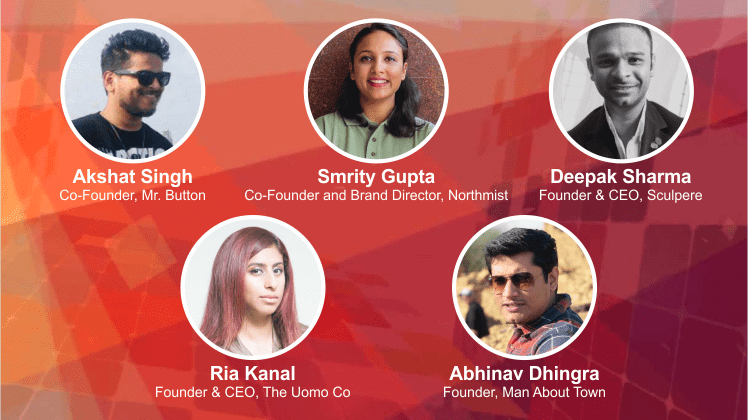
Northmist has for long been a champion for sustainability with organic T-shirts for men, but is now struggling under the ramifications of the outbreak. “Our primary segment of menswear has seen a dip in market share. With so many job losses and unpredictable income, people are purchasing less apparel for sure; having said that, we see huge opportunities for homegrown brands. Also, with promotion of ‘vocal for local’, there is hope for local brands like us. If we can stay relevant and provide innovation in the apparels segment, then there is a market waiting for us. Also, consumers are now going to look more closely for ethical brands, and there is a conscious transition happening towards it,” averred Smrity Gupta, Co-founder & Brand Director of Northmist.
The way forward
Customer’s consumption pattern will now be more need-based rather than demand-driven. A brand’s communication also needs to be changed in order to maintain brand recall which is not too pushy during such times.
“In fact, a brand’s communication strategy is the most important tool to grow in business as of now. With orders stalled and consumers preserving cash, the only way to make them remember your brand is by showing you care. The market will turn around… if not now, then in the near future, and all that will remain is how you dealt with the downs of the pandemic and managed to maintain a healthy relationship with your consumers,” affirmed Abhinav Dhingra, Founder of Man About Town.
Comments

